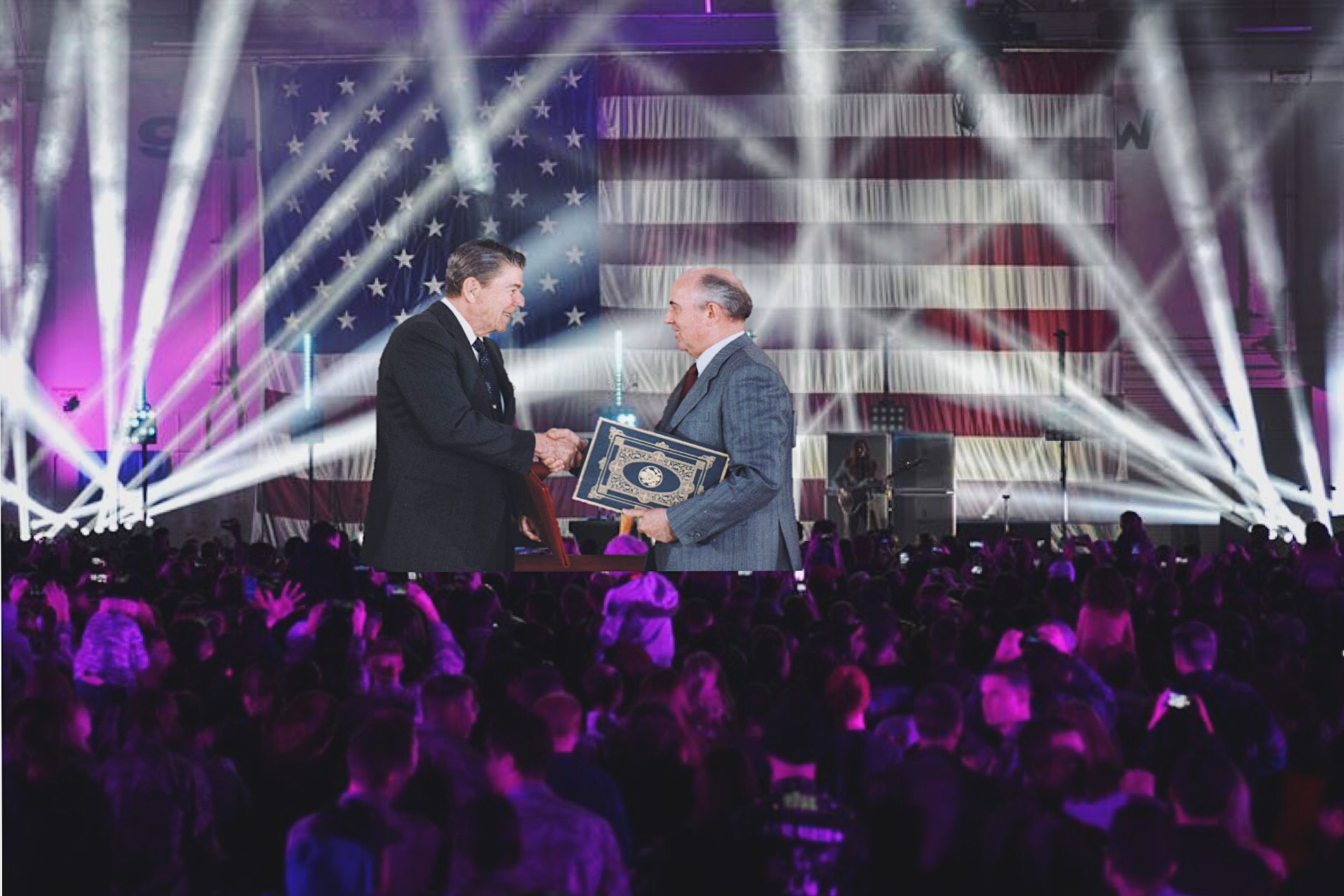If you walk to the top of the Smithsonian American Art Museum in DC, up the grandiose wood spiral staircase, through the spacious marble clad modern art exhibit, tucked away in the back corner you’ll find the gallery “Artists Respond: American Art and the Vietnam War, 1965-1975.” Hidden amongst graphic protest art and odes to sexual liberation you’ll find a gallery titled “Living Room War.” Here, Martha Rosler takes advertisements from the blossoming media materialism scene of the 60s, and inserts graphic photos from the battlefields of Vietnam. You’ll see a beautifully furnished “modern” kitchen, complete with soldiers crouching through the doorway. A lovely fireplace mantel adorned with a portrait of a bullet-ridden body. With these simple, yet powerful collages, Rosler demands her viewers pay attention to the not-so-glamorous aspects of modernity, calling to attention America’s relative lack of interest in its national security affairs.
Where would we be as a society if we were able to truly grasp the enormity and momentous importance of those pieces of paper signed during the Cold War?
In a recent Arms Control Wonk article, Michael Krepon identifies the period from 1987-2000 as the “golden age of nuclear arms control,” getting a kick-start with the signing of the Intermediate-Range Nuclear Forces (INF) Treaty. Soon after, multiple arms control treaties were negotiated, from Strategic Arms Reduction Treaties, to the Comprehensive Test Ban. Krepon states, “the golden age of arms control became possible because of decades of hard diplomatic labor.” Yet, one could argue, no one seems to care. “Nuclear arms control was the least appreciated great achievement of the Cold War,” Krepon concludes, “This success story has been mostly forgotten and is in the process of being dismantled.”
What, then, would it look like if people actively celebrated arms control treaties? Where would we be as a society if we were able to truly grasp the enormity and momentous importance of those pieces of paper signed during the Cold War? With “Arms Control Rock Stars” I wanted to ask viewers exactly that. Why aren’t we as excited about diplomacy as we are with our favorite artists’ latest album drop? What would it look like if we grieved the termination of the INF Treaty the same way we grieve the breakup of a band? Very simply, “Arms Control Rock Stars” was created to celebrate that nuclear arms control “golden age.”
























